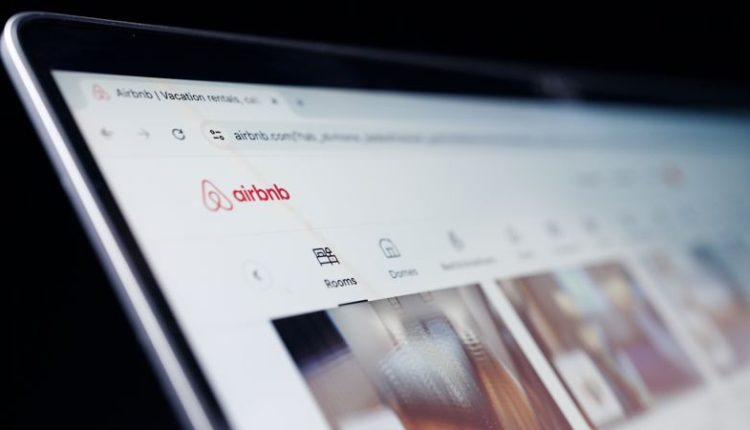For years, Airbnb has known some of its hosts have used hidden cameras to secretly spy on guests, invading their most private and intimate moments. While Airbnb has repeatedly acknowledged the problem in financial filings, it has worked to keep the scope of the issue out of the public eye through arbitration, confidential settlements and employee non-disclosure agreements. The company has also fought against regulations that could protect users and would provide authorities with more insight into who is using the platform.
CNN reviewed more than 2,000 pages of lawsuits and police records to understand more about the short-term rental industry’s hidden camera problem. CNN also spoke with nearly two dozen guests who found surveillance devices at vacation rentals or were told by police they were secretly recorded.
A CNN investigation found the use of hidden cameras is a persistent problem in the industry. Regulations are sparse, and the punishments for those that commit these crimes are lenient – video voyeurism is typically charged as a misdemeanor. Meanwhile, the people who are recorded – often naked or engaging in sexual activities – say they suffer from long-term trauma and the fear that their images could, at any moment, be disseminated on the internet.
An Airbnb spokesperson told CNN that hidden camera complaints are rare, but when they do occur, “we take appropriate, swift action, which can include removing hosts and listings that violate the policy.”
At a court-ordered deposition last year, an Airbnb representative was supposed to answer a key question from the attorney suing the company: How many complaints or reports had been made to Airbnb since December 1, 2013, of people who had been recorded by surveillance devices?
The Airbnb representative testified that the company generated 35,000 customer support tickets about surveillance devices in the preceding decade. An Airbnb spokesperson told CNN that a single report could create multiple tickets. The company declined to specify how many unique complaints there have been.
In the deposition, which has not been previously reported, the company representative sought to downplay the significance of the number of tickets, testifying they could reflect instances such as a malfunctioning doorbell camera or a tablet with recording capabilities left out on a coffee table. The representative did not provide any statistics detailing the number of claims she suggested were innocuous among the 35,000 tickets.
One former employee who handled safety issues and security concerns for Airbnb’s support line told CNN: “I’ve never received a call about a doorbell.”
Airbnb, as a matter of practice, does not notify law enforcement when they learn a host is “found to be in violation of the security camera and recording device policy,” not even when a child is involved, the company representative testified.
The company may, however, reach out to hosts about complaints as part of internal inquiries – a move law enforcement experts say could hinder criminal investigations because it gives suspects time to destroy evidence.
Airbnb makes “every effort” to support police investigations of hidden cameras, the company told CNN in a written statement.
Earlier this year, lawmakers in the European Union agreed to groundbreaking regulations governing the short-term rental industry. The new rules will require host registration, data sharing by the company and quality control of listings. Airbnb hailed the regulations as a “watershed moment” for the industry and praised the EU-wide approach.
Its public praise belies the fact that Airbnb has fought European cities for attempting to regulate the industry, said Kim van Sparrentak, a member of the European Parliament, who steered the legislation through the governing body.
“Airbnb is similar to other sharing economy companies – on a municipal level that means filing lawsuits as soon as any regulation is proposed,” she said, referring to the company’s strategy of challenging regulations in court.
There are no similar federal regulations in the United States.
Airbnb has fought local regulations – many of which aim to tamp down on illegal listings or require data sharing with authorities – that would provide the government with more oversight.
Airbnb does not perform background checks on all users. And even when it does, it tells customers not to rely on those checks
Airbnb does not run background checks on all users, according to its website. The company says it may run a background check on a US-based user if it has at least a first name, last name and date of birth for a person who creates a listing.
But the company’s website tells users they should not rely on its background checks to identify “all past criminal convictions or sex offender registrations … or other red flags.”
And even if Airbnb discovers a user has a criminal background, convictions of “murder, terrorism, rape or child molestation” are not automatic disqualifiers under the company’s policy.
Meanwhile, user verification is meant to ensure the accuracy of a listing and match a user’s name with a government-issued ID. Airbnb says every host, co-host and booking guest is identity-verified. But the company concedes that its identity verification badge does not “guarantee that someone is who they claim to be,” according to its website.
In a statement, an Airbnb spokesperson told CNN, “Airbnb’s trust and safety policies lead the vacation rental industry and include background checks on US-based hosts and guests.”
Do you have information or a story to share about safety or security concerns at Airbnb? Email [email protected], [email protected] and [email protected].”
Read the full article here

